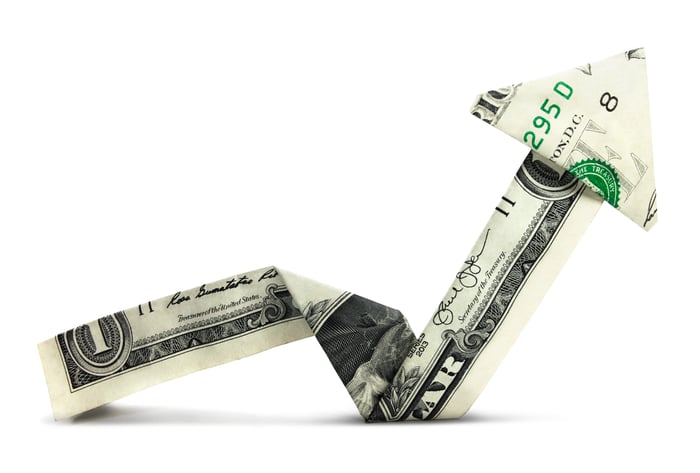Lemonade (LMND 0.88%) is disrupting the insurance industry with its tech-driven strategy. The company combines big data, behavioral economics, and artificial intelligence to make its business more efficient than traditional insurers.
In the last few months, Lemonade has been in the spotlight with news about the recent lockup expiration, a product launch in Europe, and various Wall Street analyst upgrades. In the wake of those developments, the share price has soared over 200%, leaving investors' heads spinning and analysts' price targets in the dust. Here's what investors need to know.
Lemonade's business is growing quickly
In December, Lemonade announced its launch of renters insurance in France. The company now operates in three different European countries as well as 37 states and Washington, D.C. This geographic expansion widens the pool of potential customers, which should help Lemonade continue to scale its business in the coming quarters.

Image source: Getty Images.
Likewise, Lemonade recently announced that it reached the one million customer milestone in fiscal 2020 -- just over four years after the company was founded. By comparison, it took market-leading insurers like State Farm and Geico over 20 years to acquire one million customers. Put another way, Lemonade got there nearly five times faster.
Since its inception, Lemonade has focused on differentiating itself from other insurance companies. That's why Lemonade donates up to 40% of unclaimed premiums to nonprofits as part of its annual Giveback program. And given the company's exceptional customer growth, it appears Lemonade's efforts to "delight consumers" and create a positive brand image are working. That's a relatively novel concept for an insurance company.
Lemonade's strategy is proving effective
Unlike traditional insurers, Lemonade's AI-powered business uses big data to help underwrite policies and detect fraudulent claims. As a result, Lemonade's ability to predict risk should improve over time, which should translate into better underwriting and a lower loss ratio (the percentage of customer premiums paid out in claims) compared to traditional insurers.
During the most recent earnings call, CEO Daniel Schreiber provided proof that this strategy is indeed working. He explained that, due to one of the worst wildfire and hurricane seasons on record, home insurance companies are on the hook for $10 billion in catastrophic (CAT) losses from the third quarter of 2020. If Lemonade's underwriting ability were merely average for the industry, the company's CAT losses would have been roughly $17 million (based on its market share). Instead, Lemonade's CAT losses were about 75% lower than that. Moreover, the company's gross loss ratio was 72% -- 6% better than the same quarter last year and roughly 10% better than the industry average. That's good news for investors, and if these trends continue, Lemonade could be much more profitable than its rivals.
Fear and irrational exuberance
Fear has likely contributed to Lemonade's soaring share price as well. As of Dec. 14, investors had shorted over 23% of Lemonade's float (the shares publicly available to buy and sell). Put another way, a lot of investors are betting against this company. But since then, the stock price has risen from $92 to as high as $188 on Jan. 12, creating what's known as a short squeeze. This means short-sellers were forced to buy the stock in order to exit their short positions, driving the share price up in the process.
We can also attribute some of Lemonade's price appreciation to irrational exuberance. Sometimes, a little bit of news can create a lot of momentum, and that appears to be the case here. Analysts at Piper Sandler and Morgan Stanley have both raised their price targets for Lemonade, but nothing earth-shattering has happened in the last three months. Yet the stock has almost tripled since November, and Lemonade now trades at 86 times trailing 12-month sales -- an astronomical valuation compared to rivals like Allstate and Berkshire Hathaway. And while I never make decisions based on valuation alone, it's worth noting that this makes the stock riskier.
A final word
Investors should keep in mind that Lemonade is much smaller and less experienced than the vast majority of its rivals. The company is not yet profitable, nor is it free cash flow positive, and the stock's price-to-sales ratio is near an all-time high. In other words, buckle up -- this could be a bumpy ride.
For what it's worth, I own shares of Lemonade, and despite the risk, I have no plans to sell. The company has the potential to disrupt a multi-trillion dollar industry, and its strong customer growth and better-than-average loss ratio are indications that its novel strategy is working. The worst thing that could happen is that Lemonade fails completely and the share price drops to $0. But the potential upside is much greater -- a decade from now, this company could be worth 10 times what it is today. And that's a trade-off I'm willing to make.





